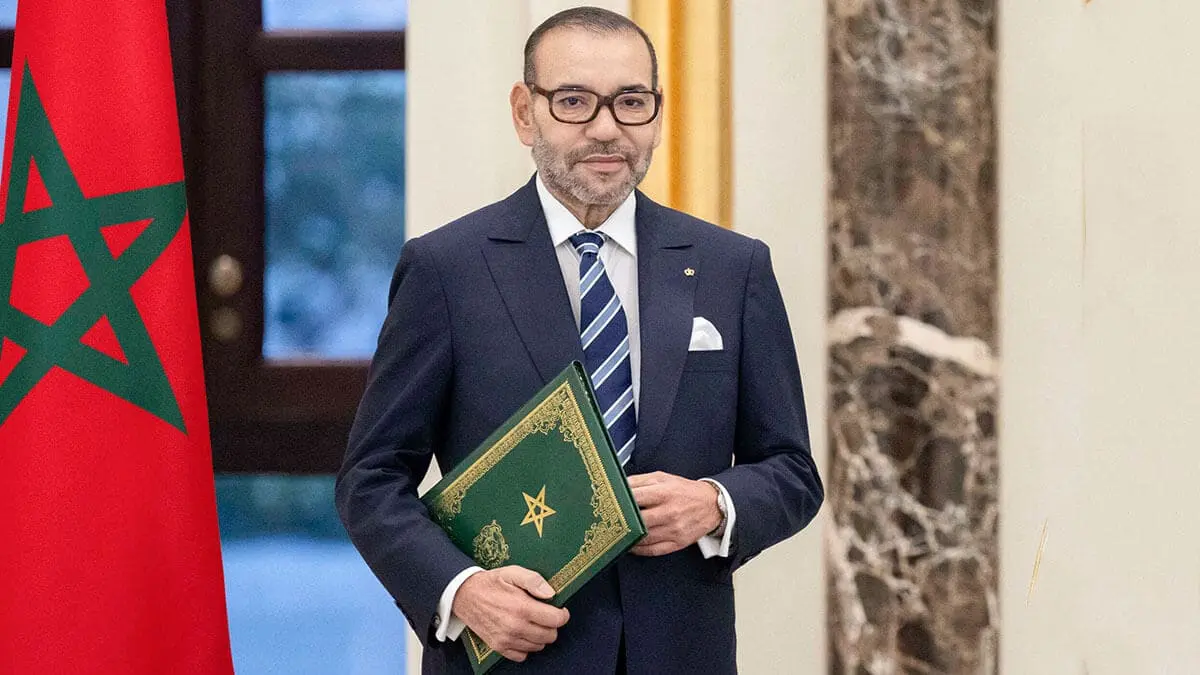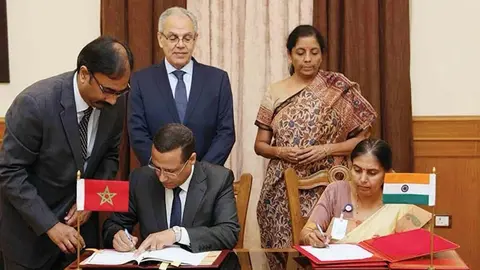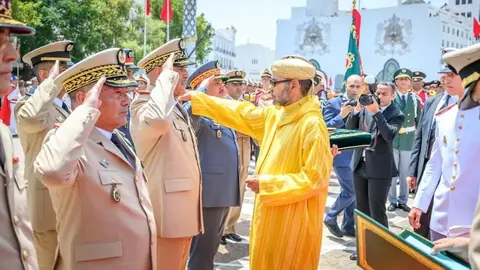Expansion of relations with Ethiopia: Morocco's entry into the Horn of Africa countries

For forty years, Morocco's influence on the continent was limited to a few West African countries, as its absence from the African Union limited opportunities to play greater roles in African political decision-making in both East and West Africa. This changed with the Kingdom's return in 2017 to AU structures and its insistence on building strong and sustainable relationships with countries on the continent.
Like the rapprochement with Nigeria, Rwanda and Angola, Morocco's relationship is gradually developing with both Kenya, which recently installed its first female ambassador in Rabat, and Ethiopia, unhindered by Addis Ababa's recognition of the Polisario Front.
Bilateral relations between Addis Ababa and Rabat predate the current tension in the Horn of Africa. Morocco and Ethiopia have maintained diplomatic relations characterised by economic cooperation, political support and cultural exchange. These ties were strengthened following the visit of Moroccan King Mohammed VI to Ethiopia, which was an important step towards strengthening bilateral relations. The historic visit resulted in the signing of numerous agreements in various sectors, including air services, trade, taxation, investment, agriculture and renewable energy.
Relations between Ethiopia and Morocco are developing towards a strategic partnership aimed at serving the common interests of the two countries, while contributing effectively to the development and stability of the African continent, whose military sphere will be one of its important links.
The official meetings held on 15 July 2024 between the Chief of Staff of the Ethiopian National Defence Forces, Field Marshal Berhanu Jula, and a Moroccan military delegation in the capital, Addis Ababa, paved the way for military cooperation to lay solid foundations for a formal agreement, based on the spirit of African brotherhood, with a renewed partnership in peace and security.
Cooperation with Ethiopia at the military level aims to deepen Morocco's relations with Ethiopia and the surrounding countries in the Horn of Africa, in the service of Moroccan national security. Let us not forget here that Iran and its weapons, which interfere in Moroccan sovereign affairs, are also disrupting the security of these countries, starting with the Gulf of Aden. By strengthening its military cooperation with Ethiopia, Morocco aims to secure common interests and block any attempt to threaten those interests, and to confront the common threats and challenges facing the African continent as a whole, such as organised crime and terrorism.
The strengthening of relations between the two countries, based on the elements of sovereignty, national security and vital interests, was the focus of talks between the Minister Delegate to the Prime Minister in charge of the Moroccan Defence Administration, Abdellatif Lodi, and the Chief of the General Staff of the Ethiopian Defence Forces, Berhanu Jula, with the aim of strengthening bilateral cooperation in the field of defence between the two Moroccan and Ethiopian armies.
The extension of bilateral cooperation to other areas of common interest was also the subject of discussion by the Ethiopian delegation that visited Morocco from 25 to 29 August with the Inspector General of the Royal Moroccan Armed Forces, Commander of the Southern Region, Lieutenant General Mohammed Bariz.
Moroccan-Ethiopian military cooperation is therefore not directed against anyone. It is a state doctrine that establishes the Kingdom's foreign policy. Rather, it is a sovereign necessity to enhance presence, protect interests and exchange expertise.
If we look at the map, we find that Ethiopia is surrounded by many challenges and there is no objection to this cooperation, especially now that the Kingdom of Morocco is witnessing a new turn in its path towards strengthening its defence capabilities by actually entering the world of arms and ammunition manufacturing and diversifying arms suppliers away from traditional capitals such as Washington and Paris. This will have a positive impact on bilateral and regional dynamics, although some Spanish circles did not like this approach, with Spanish media saying that ‘the developments Morocco has witnessed in the field of strengthening its military capabilities in recent years constitute a threat to Spain in one way or another’.
Morocco's quest to maintain and promote peace in Africa, intervening in African conflicts as a mediator or participating in peacekeeping missions, implies a diplomacy that increasingly relies on soft power, especially the religious dimension and economic relations. However, security issues are not only related to the neighbourhood, but extend beyond it to countries such as Ethiopia and Kenya, as where there are economic and diplomatic interests, the need to reinforce security and the military is a vital necessity, underlining that the Moroccan government's doctrine is not compatible with any interference in the affairs of friendly countries.
Chronologically, Ethiopia inaugurated a diplomatic opening towards Morocco with visits to Rabat in May 2015 by its foreign and finance ministers. King Mohammed VI also visited Ethiopia in January 2017, shortly before the Kingdom's return to the African Union. In September 2021, the Ethiopian government and the Office Chérifien des Phosphates (OCP) signed an agreement to build a fertiliser factory, talks on which began in 2016.
Interest in East African countries matured when Morocco returned to the African Union seven years ago. The political and diplomatic accretions achieved by Morocco during this period are understood to clearly confirm its strategic decision to regain its headquarters in Addis Ababa. After King Mohammed VI led a diplomatic campaign in sub-Saharan Africa, this secured Morocco's position as one of the best established North African countries in this region, to the point of making Morocco an important continental actor, reinforcing a network of embassies, consular and economic advisors, which contributed to strengthening the strategy of agreements and alliances with African countries and regional non-governmental organisations.
No one knows more about the level and secrets of the relationship than Nozha Alawi Mohammadi, the veteran ambassador to Ethiopia and Djibouti, who explained this Moroccan approach by saying that regional security is a very important area where Morocco and Ethiopia have found common ground. Both countries face security challenges and recognise the importance of cooperative efforts to address these problems. Through joint initiatives and participation in regional organisations such as the African Union, the two countries work together to promote peace, stability and security in their regions.
Given the importance of the agriculture and food security sector in Ethiopia, Morocco was present to provide effective and necessary assistance. The aid came from the Moroccan company Office Chérifien des Phosphates Chérifien Phosphates, which signed an agreement with the Ethiopian government to build a large-scale fertiliser factory in Dire Dawa. The project, estimated to be worth some 3.7 billion dollars, aims to strengthen the agricultural sector in Ethiopia and will have a positive impact on economic relations between the two countries.
In addition to military, economic and political, Morocco has excelled in the field of soft power from a religious perspective, considered of strategic importance in Moroccan-Ethiopian relations and with East African countries, promoting moderation and a culture of peace and tolerance that serves national security politically and diplomatically and contributes to broader development and stability, away from convulsions within the continent.



